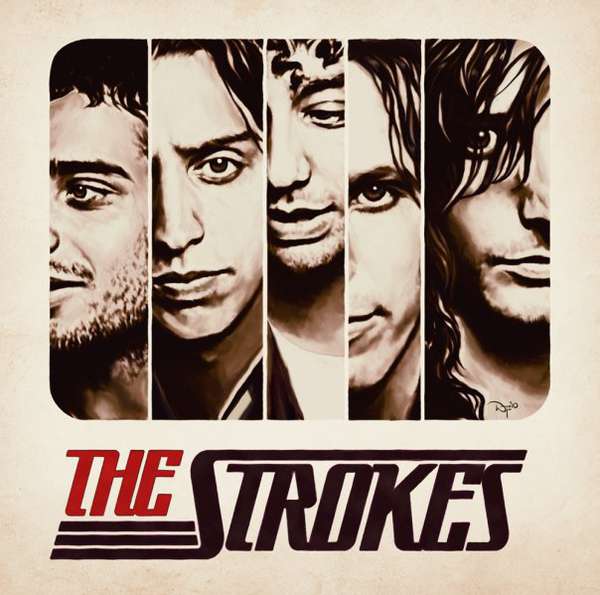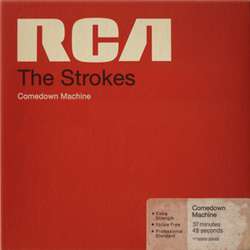The first words to leap out at you on the sophomore LP by the Strokes are "I want to be forgotten." How literally this can be taken is anyone's guess, but for a band under the amount of pressure the Strokes have been, Julian Casablancas' turn of phrase might be the downright truth. Five children of fortune who formed a band that unexpectedly blew up and ushered in an entire scene of hipster kids to the forefront of MTV culture, as well as kicking down the doors for an entire subgenre of rock-n-roll that had been ignored since the sixties, the Strokes might be wishing they'd never formed the group in the first place. Sure, they're rich and famous, but they were already both before, so why form a band as well? And after that band leads to nothing but stress and hype and pressure, why continue it? That they even chose to stick it out this far must mean they're pretty dedicated to what they're doing to keep with it, and with a set of songs this solid, it's not hard to see why they should be. The reviews you've read before this one claiming that this is essentially Is This It v.2.0 are fairly accurate, taking that record's formula of unadulterated, stripped-down rock, and further refining it, trimming most of the fat on the songs and replacing them with impressive lead guitar work and keyboard flourishes, dumping the vocals to the bottom of the mix, and pushing the guitars to the very top. The first four songs on the record are the most propulsive, from the stutter-stepping "What Ever Happened?" to the darkly seductive "Reptilia," to the stop-starting of "Automatic Stop," to the irresistible, almost new-wave danceable pop of "12:51." Later in the record, the jaunty pop of "Meet Me in the Bathroom," "The End Has No End," and "I Can't Win" set the bar disgustingly high for their peers. But even with them being good, I get the feeling with this record that I had with their debut, which is that I've heard this all before, which is the only fault that I can really find with the Strokes' music. They're solid and they deliver the goods, but that's as far as it goes. Sure, their songs are good and enjoyable, but the entire band seems so detached and uninvolved emotionally that it makes it hard to even care about the personal trials and tribulations Mr Casablancas and company are going through. Ultimately, I'm left with another pretty good record from a band that seems to be damned to putting out nothing but "pretty good" records for the duration of their career. And strangely enough, I think that they're okay with that. These criticisms are the same ones that were directed at the band upon the release of their first record, and if they haven't changed anything, it must mean that either they're behaving and performing this way for an artistic reason, or they simply don't care. I'm from the camp that tends to think it's the latter, because, considering where they're coming from, why should they need to get too worked up about anything at all? While this point can be a little infuriating when you consider that even when they're not trying, they're still pretty good, and with a little effort they might be great, the Strokes have never seemed to be type of band who wants to be taken at any more than face value. After all, ever generation needs its own band of apathetic slackers to still do it better than the rest of the bands out there; it looks like the Strokes are ours.



